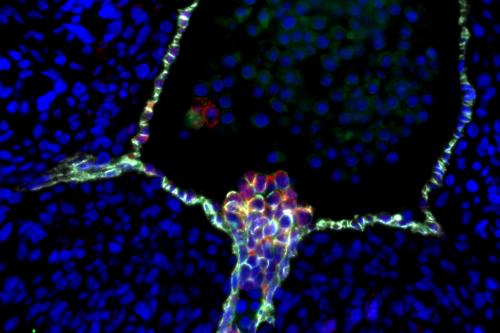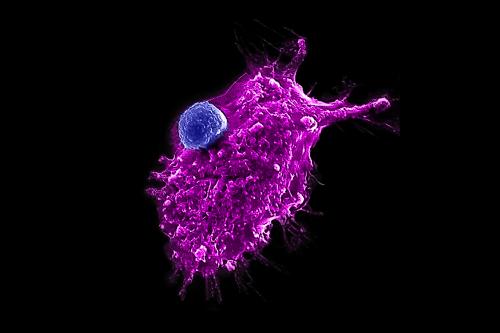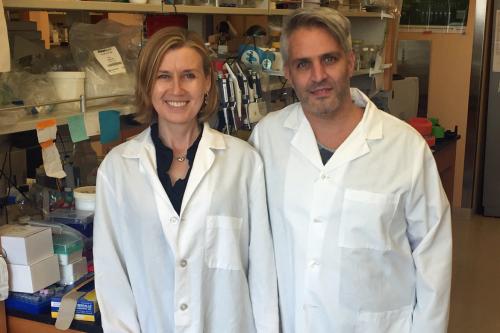
Glossary
Blood stem cells
A type of tissue-specific stem cells Mature stem cells that are found in many adult organs and tissues (such as the brain and muscles). Unlike pluripotent stem cells, they can only produce the cell types found in the organ or tissue they inhabit. They're responsible for replacing cells that have been lost due to natural wear and tear, injury and illness throughout life; however, their ability to do so decreases with age. tissue-specific stem cells Mature stem cells that are found in many adult organs and tissues (such as the brain and muscles). Unlike pluripotent stem cells, they can only produce the cell types found in the organ or tissue they inhabit. They're responsible for replacing cells that have been lost due to natural wear and tear, injury and illness throughout life; however, their ability to do so decreases with age. found in the blood and bone marrow that can form various types of mature blood and immune cells. These cells play a crucial role in maintaining the body's blood supply and immune system by continuously producing new blood cells throughout a person's life.
Blood stem cells, also known as hematopoietic stem cells Cells that have the ability to differentiate into multiple types of cells and make an unlimited number of copies of themselves. stem cells Cells that have the ability to differentiate into multiple types of cells and make an unlimited number of copies of themselves. or HSCs, have the ability to make unlimited copies of themselves and produce all kinds of blood and immune cells found in the body. This includes red blood cells, which carry oxygen from the lungs to the rest of the body; white blood cells, which help the immune system fight infection and diseases; and platelets, which help control bleeding.
Our bodies produce one trillion new blood cells each day and yet HSCs are incredibly rare — one out of 30,000 cells in the bone marrow is a blood stem cell. The scarcity of HSCs limits the availability of blood stem cell transplants, which doctors have been using to treat blood and immune diseases such as leukemia and aplastic anemia for more than 50 years.
For as long as blood stem cell transplants have been used as successful treatments, researchers have been pursuing methods to produce HSCs from pluripotent stem cells Stem cells that can undergo self-renewal and differentiation to become any cell type found in the body. The two major types used in research are embryonic stem cells and induced pluripotent stem cells. pluripotent stem cells Stem cells that can undergo self-renewal and differentiation to become any cell type found in the body. The two major types used in research are embryonic stem cells and induced pluripotent stem cells. in the lab. Our researchers are making major strides towards this goal by uncovering the genetic and molecular mechanisms that govern how these elusive cells form and mature.


